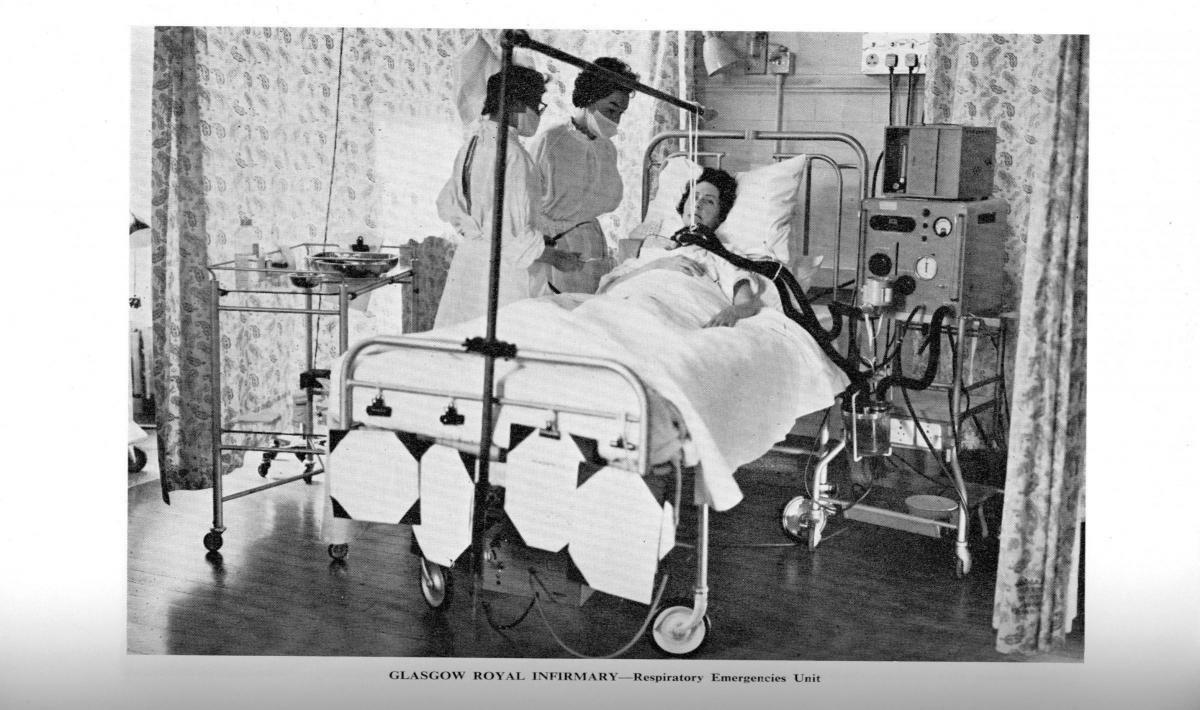SNF-Forschungsprojekt 2024-2028: "Life Support: Technologies, Institutions and Experiences in the History of Intensive Care Medicine, 1945-2020"

Project Description
Intensive care medicine and intensive care units (ICUs) entered a state of heightened visibility and internal crisis during the first years of the Covid-19 pandemic. Yet the state of uncertainty surrounding intensive care was hardly new. Since their appearance in the 1950s, ICUs have been spaces of profound uncertainty, improvisation, and experimentation. They have also become a central element of hospital medicine, one of the chief drivers of hospital costs, and a key site for major ethical dilemmas and, we argue, the emergence of a new patient identity. Yet despite their centrality to modern hospitals – in both normal times and during emergencies - no compelling history of intensive care medicine currently exists. This collaboration between teams at the Universities of Zurich and Manchester will produce the first sustained transnational history of intensive care medicine.
ICUs first emerged as an improvised response to the European polio epidemics of the 1950s and have remained spaces of improvisation and experimentation for hospitals that sought to adapt new technologies to changing patterns of illness. These new, experimental units proved attractive to both Swiss and UK hospital practitioners who were pursuing different professional, institutional and political goals in the second half of the twentieth century. Despite the profound differences in their healthcare landscapes and policies, by the 1970s the UK and Switzerland were two of the first nations to develop professional organizations for intensive care medicine, and to stabilize elements of intensive care practice that grew from the unstable and contested space of the ICU. By the 1980s and 1990s, the UK and Switzerland became the first nations to establish training programs for physicians who wished to specialize in intensive care. Yet these decades also saw the emergence of profound concerns about iatrogenic illness in the ICU; these concerns eventually became the main driver of research in the newly professionalized intensive care community. This continued through the first decades of the twenty-first century and emerged into public view in the first year of the Covid-19 pandemic, when emergency conditions surfaced internal debates about intensive care practice, and changing disease patterns highlighted the challenging experiences of intensive care patients.
The research-guiding questions that inform the three subprojects of this proposal draw inspiration from the history of technology, the social history of medicine, and the historiography of patient experience. These are 1) what technological changes enabled the emergence of intensive care, and how did these new technologies change hospital practice and understandings of disease? 2) what social, political, economic and cultural factors brought about the institutionalization of intensive care in Switzerland and the UK, and how did the application of intensive care differ in each nation? 3) how did the existence of intensive care change the experience of hospital patients in the twentieth and early-twenty-first centuries?
Our aim with this project is to demonstrate the historical roots of contemporary challenges around ICUs, be they scientific and technological, or political and social. In doing so, we hope to inform debate and discussion – both within medicine and in broader society – about the future direction of intensive care and hospitals in a post-Covid era.
Staff
This project consists of two teams, one centered at the IBME, and the other at the University of Manchester.
The Swiss team includes:
Prof. Dr. phil. Flurin Condrau
Simon Linder, MA
Yvan Prkachin, PhD
The Manchester team includes:
Carsten Timmermann, MSc, MA, PhD
Rachel Meach, PhD
Links
Publications
Prkachin, Yvan. “Blood Cars: Polio, Cyborg Lungs, and the New Medical Device Industry.” E-Flux Architecture, e-flux Architecture – Treatment, 2025. https://www.e-flux.com/architecture/treatment/647320/blood-cars-polio-cyborg-lungs-and-the-new-medical-device-industry